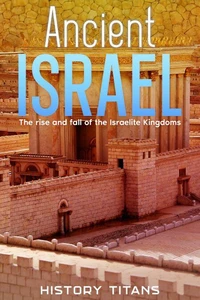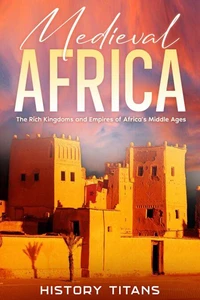Cyrus the Great: The Conqueror Who Founded the First Persian Empire
Par :Formats :
Disponible dans votre compte client Decitre ou Furet du Nord dès validation de votre commande. Le format ePub est :
- Compatible avec une lecture sur My Vivlio (smartphone, tablette, ordinateur)
- Compatible avec une lecture sur liseuses Vivlio
- Pour les liseuses autres que Vivlio, vous devez utiliser le logiciel Adobe Digital Edition. Non compatible avec la lecture sur les liseuses Kindle, Remarkable et Sony
 , qui est-ce ?
, qui est-ce ?Notre partenaire de plateforme de lecture numérique où vous retrouverez l'ensemble de vos ebooks gratuitement
Pour en savoir plus sur nos ebooks, consultez notre aide en ligne ici
- FormatePub
- ISBN978-1-393-35615-8
- EAN9781393356158
- Date de parution28/11/2020
- Protection num.pas de protection
- Infos supplémentairesepub
- ÉditeurRelay Publishing
Résumé
The Greeks called him Cyrus, the Elder, due to his magnanimous efforts to bring the Middle East together and establish a solid administration and bureaucracy. To this day, he still inspires us thanks to his tolerance and eloquent ruling. He was a pioneer of human rights and laid out rules that spearheaded freedom and equality. Cyrus was recognized as a polytheist who favored worshipping many gods at a time.
He turned from one god to another, according to his agenda and circumstances. He prayed to a god who could fulfill his desire and lead him to victory, which was noted during his rule in Babylonia. The former Babylonian ruler did not allow his people to worship their god and imposed hard labor, making life unbearable for thousands, but when Cyrus overtook the throne, he allowed Babylonia's people to follow their religion and worship their god, which increased their trust and admiration in Cyrus.
He turned from one god to another, according to his agenda and circumstances. He prayed to a god who could fulfill his desire and lead him to victory, which was noted during his rule in Babylonia. The former Babylonian ruler did not allow his people to worship their god and imposed hard labor, making life unbearable for thousands, but when Cyrus overtook the throne, he allowed Babylonia's people to follow their religion and worship their god, which increased their trust and admiration in Cyrus.
The Greeks called him Cyrus, the Elder, due to his magnanimous efforts to bring the Middle East together and establish a solid administration and bureaucracy. To this day, he still inspires us thanks to his tolerance and eloquent ruling. He was a pioneer of human rights and laid out rules that spearheaded freedom and equality. Cyrus was recognized as a polytheist who favored worshipping many gods at a time.
He turned from one god to another, according to his agenda and circumstances. He prayed to a god who could fulfill his desire and lead him to victory, which was noted during his rule in Babylonia. The former Babylonian ruler did not allow his people to worship their god and imposed hard labor, making life unbearable for thousands, but when Cyrus overtook the throne, he allowed Babylonia's people to follow their religion and worship their god, which increased their trust and admiration in Cyrus.
He turned from one god to another, according to his agenda and circumstances. He prayed to a god who could fulfill his desire and lead him to victory, which was noted during his rule in Babylonia. The former Babylonian ruler did not allow his people to worship their god and imposed hard labor, making life unbearable for thousands, but when Cyrus overtook the throne, he allowed Babylonia's people to follow their religion and worship their god, which increased their trust and admiration in Cyrus.
















